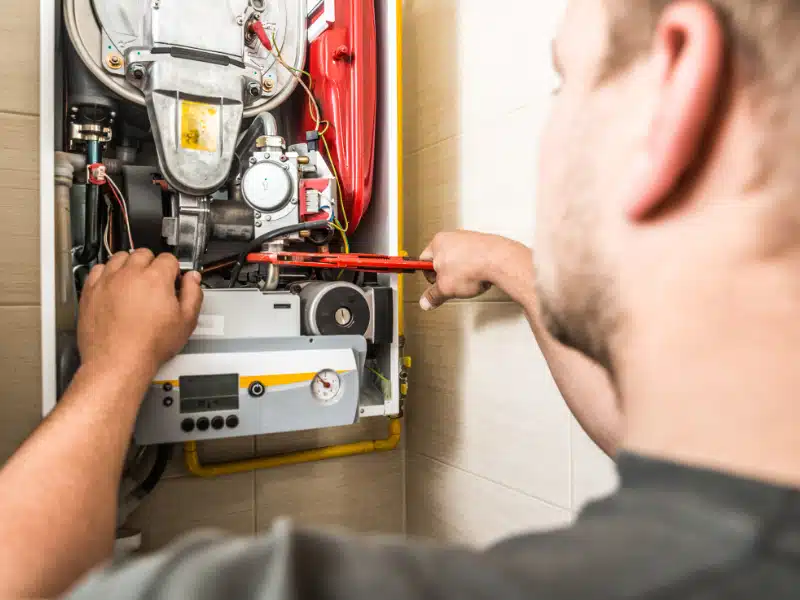The best time to replace your heating system is when it’s over 15 years old, needs frequent repairs, or struggles to heat your home evenly. Upgrading to an energy-efficient model can lower energy bills by up to 30% and improve comfort. Schedule a professional inspection to decide the right solution for your home.
Your heating system is the backbone of home comfort during colder months. But like all appliances, it has a limited lifespan. Replacing it at the right time not only prevents inconvenience but also saves money and energy. Here’s everything homeowners need to know about identifying the right time to upgrade their heating system.
Why Timely Replacement Matters
Heating systems older than 15 years are less efficient and cost more to operate. Newer systems, especially ENERGY STAR-certified ones, are designed to use energy more efficiently and help reduce utility bills.
Replacing your system before it breaks down ensures uninterrupted comfort. Modern systems often improve indoor air quality and maintain more consistent temperatures throughout your home. Don’t forget, an outdated heating unit could also be a safety risk, especially if it relies on older technologies.
Signs You Should Replace Your Heating System
High Energy Bills
If your heating bills keep climbing even when usage stays the same, your system may be losing efficiency. This is especially common in systems over 15 years old.
Frequent Repairs
Constant repairs that cost more than half the price of a new system are a clear sign it’s time to upgrade. For repair options, visit heating repair services.
Uneven Heating
Notice hot and cold spots in different parts of your home? This usually means the system is struggling to distribute heat evenly.
Strange Noises or Smells
Loud clanking or odd burning smells indicate severe issues like broken components or malfunctioning burners.
System Age
Heating systems typically last 15–20 years. If yours has crossed that range, replacement is a smarter investment than constant repairs.
Choosing the Right Heating System
Understand Your Needs
The size of your home, local climate, and energy source availability play key roles in selecting a system. Smaller homes may do well with electric systems, while larger homes in cold climates benefit from gas furnaces.
Explore Efficient Models
Modern heating systems are significantly more efficient than older units. Look for:
- ENERGY STAR certification for energy savings.
- High SEER ratings (Seasonal Energy Efficiency Ratio) for better performance.
Consider Features
Advanced features like zoning systems and smart thermostats can enhance comfort while saving energy. Learn more about smart thermostat benefits.
Maintenance Tips for Longer System Life
- Schedule Regular Inspections: Annual maintenance identifies small issues before they become costly repairs. Explore heating maintenance services.
- Replace Filters Frequently: Dirty filters reduce efficiency. Change them every 1–3 months.
- Seal Ducts and Air Leaks: This helps maintain consistent heating and cuts energy bills.
- Test the Thermostat: Ensure it’s calibrated correctly to avoid overworking your system.
Comparing Heating System Options
| System Type | Lifespan (Years) | Efficiency | Best For |
|---|---|---|---|
| Heat Pumps | 15–20 | 3-4x energy-efficient | Mild to moderate climates |
| Gas Furnaces | 15–20 | Up to 98% energy efficiency | Cold climates |
| Electric Systems | 15–25 | Moderate efficiency | Areas with stable electricity rates |
| Solar Heaters | 15–20 | High efficiency when combined with other systems | Eco-conscious homeowners |
If you’re unsure which system to choose, contact our team for guidance on heating installation options.
Preparing for Emergency Failures
A sudden breakdown can leave you vulnerable during winter. Be proactive to avoid such situations.
- Keep Portable Heaters Ready: These can provide temporary relief during an outage.
- Perform Pre-Winter Checks: Schedule a maintenance session before the cold sets in.
- Save Emergency Contacts: Call us now for fast assistance with heating system repairs.
For more tips, read our guide on emergency heating solutions.
When to Call a Professional
While minor issues like filter replacement can be handled independently, larger problems demand professional expertise. A certified technician ensures safe, efficient repairs or installations. For expert assistance, visit our heating services page.
The Cost Factor: Repair vs. Replacement
| Factor | Repair | Replace |
|---|---|---|
| Cost | $300–$2,000 per repair | $3,000–$7,500 one-time |
| Lifespan | Limited extension (1–3 yrs) | 15–20 years |
| Energy Efficiency | No improvement | Significant improvement |
| Reliability | Frequent breakdowns | Long-term reliability |
If repair costs exceed 50% of replacement costs, it’s time to invest in a new system.
Upgrade Your Heating System Today
Don’t let an outdated system compromise your comfort or safety. Call us now for a consultation on heating repair or installation services. Visit HVACation to explore our full range of services, including plumbing, air conditioning, and emergency repairs.

